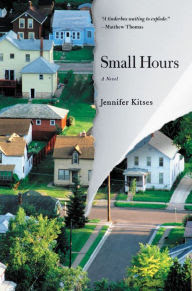 Jenni L. Walsh spent her early years chasing around cats, dogs, and chickens in Philadelphia's countryside, before dividing time between a soccer field and a classroom at Villanova University. She put her marketing degree to good use as an advertising copywriter, zip-code hopping with her husband to DC, NYC, NJ, and not surprisingly, back to Philly. There, Walsh's passion for words continued, adding author to her resume.
Jenni L. Walsh spent her early years chasing around cats, dogs, and chickens in Philadelphia's countryside, before dividing time between a soccer field and a classroom at Villanova University. She put her marketing degree to good use as an advertising copywriter, zip-code hopping with her husband to DC, NYC, NJ, and not surprisingly, back to Philly. There, Walsh's passion for words continued, adding author to her resume.Becoming Bonnie, her debut novel, tells the untold story of how church-going Bonnelyn Parker becomes half of the infamous Bonnie and Clyde duo during the 1920s. The sequel Being Bonnie will be released in the summer of 2018.
From Walsh's Q&A with Deborah Kalb:
Q: You've noted that you originally wrote about Bonnie and Clyde's crime spree, before turning to telling Bonnie's story. Why did you decide to focus on Bonnie?Visit Jenni L. Walsh's website.
A: Yes, when I first began writing, I had every intention of telling their crime spree story. While there are various nonfiction accounts of Bonnie and Clyde’s life on the lam, I saw an opening for a fictional retelling.
I dove in, but Bonnie and Clyde’s background came as a surprise to me. There isn’t much known about Bonnie’s adolescent years, but from what I gathered, she started life as a very wholesome individual. Bonnie sang at church, received straight As, won spelling bees, and participated in beauty pageants.
I had this moment where I thought… but she ended up as a fugitive? How? So...[read on]
Writers Read: Jenni L. Walsh.
The Page 69 Test: Becoming Bonnie.
My Book, The Movie: Becoming Bonnie.
--Marshal Zeringue





























